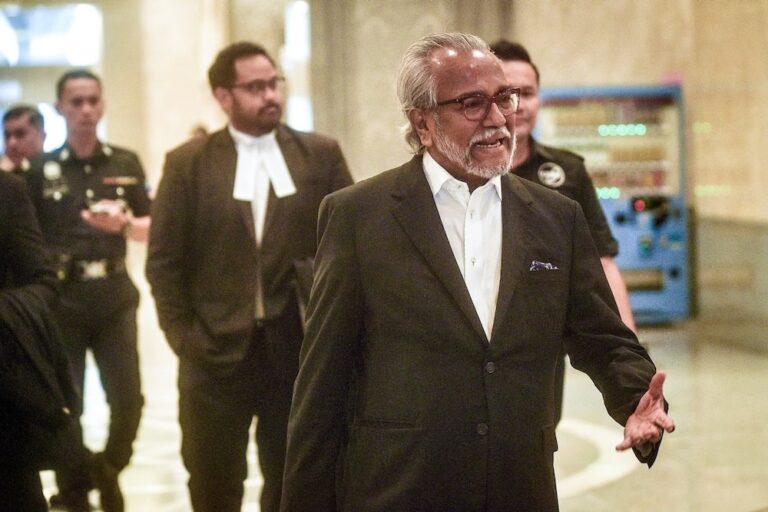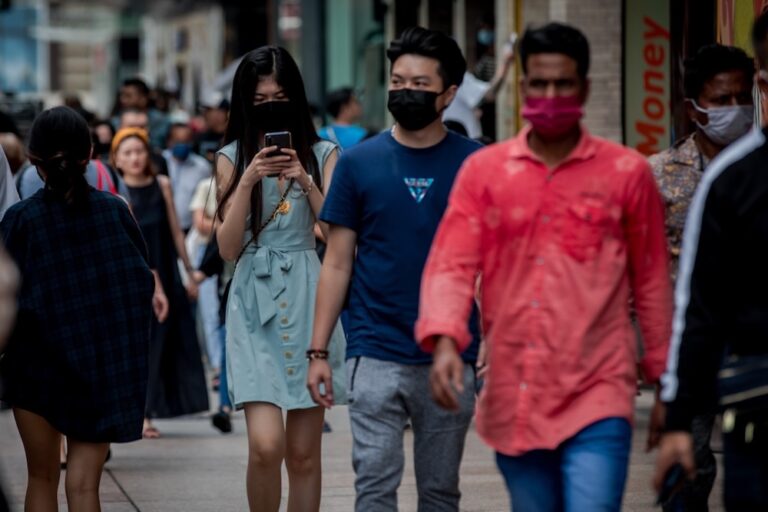(SEAPA/IFEX) – Two opposition activists in Malaysia who made public a video that indicated possible interference in top judicial appointments risk prosecution for refusing to comply with an order to reveal their sources. On 4 October 2007, Sivarasa Rasiah and Sim Tze Yin of the People’s Justice Party were served an order by the Anti-Corruption […]
(SEAPA/IFEX) – Two opposition activists in Malaysia who made public a video that indicated possible interference in top judicial appointments risk prosecution for refusing to comply with an order to reveal their sources.
On 4 October 2007, Sivarasa Rasiah and Sim Tze Yin of the People’s Justice Party were served an order by the Anti-Corruption Agency (ACA) demanding that they reveal, among other things, the identities of the persons who gave them a video recording, dated 2002, which showed a well-connected lawyer in a seeming act of arranging senior judicial appointments with an unidentified person over the telephone.
The opposition party released the shocking video on 19 September 2007, which has since been uploaded to various sites, including the independent web-based daily “Malaysiakini” ( http://www.malaysiakini.tv/?vid=1378 ). Sivarasa, a vice-president of the party, then filed a report with the ACA, urging an investigation into the apparent scandal revealed by the recording.
Instead, he and Sim, a personal assistant to the political party’s adviser Anwar Ibrahim, were called in for questioning on 2 October and later given a week to reveal their sources, failing which, the ACA said they would be breaching Section 29(c) of the Anti-Corruption Act of 1997 and subjected to a maximum fine of RM10,000 (approx. US$2,957) or two years in prison.
On 11 October, the deadline they were given, the two opposition activists stated that they would not comply with the order, citing concern for the personal safety of their sources since there is no law protecting whistleblowers in Malaysia.
SEAPA shares the concerns of its local partner, the Centre for Independent Journalism (CIJ), about the threat facing Sivarasa and Sim.
“The threat of jail [facing the two opposition activists] is likely to deter potential whistleblowers, making it more difficult for the ACA to carry out investigations in the future,” CIJ said in a 5 October media release ( http://www.cijmalaysia.org/display_story.asp?id=542 ).
The ACA must also realise that in pressuring only the whistleblowers while apparently not taking any action against the people implicated in the video, it is severely undermining public confidence in its mission as an agency entrusted to combat corruption.
This particular case, more than others, requires the ACA’s correct handling due to its grave implications for the independence of a judiciary already damaged by the controversial firing of the chief justice in 1988 for “judicial misconduct” and several questionable appointments, firings and judgements in the upper courts since then. The public has the right to know whether there has been further interference in the judiciary, as the video recording appears to indicate, and the truth can only be revealed by whistleblowers who, in turn, must be guaranteed protection from those whose interests will be harmed by such exposés.
SEAPA joins CIJ in urging the enactment of laws to protect whistleblowers and freedom of information. With the general election widely expected to be held in early 2008, it is high time Prime Minister Abdullah Ahmad Badawi made good on his previous election pledge to combat corruption by ensuring that there is legislative protection for those who disclose such information.


